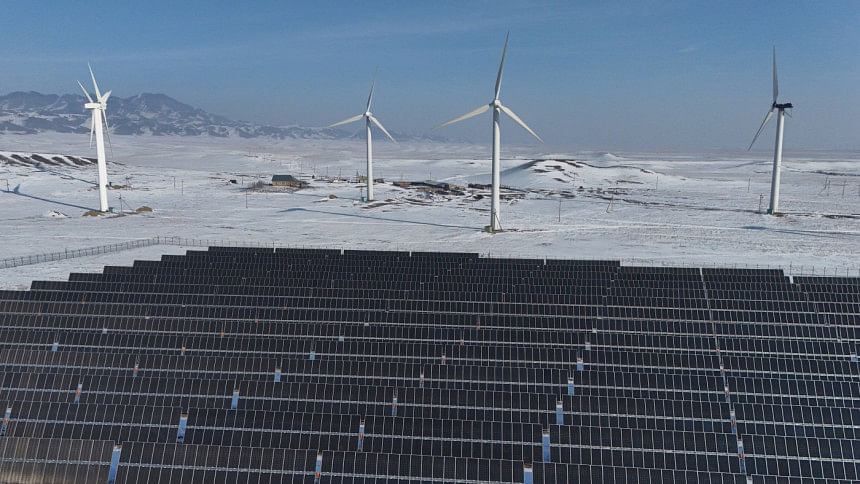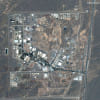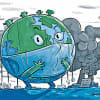Why global crises are pushing the world towards renewables

It's hard to look at the news today without seeing energy in the background of almost every crisis. Whether it's the war in Ukraine, the standoff between Israel and Iran, or the slow militarisation of the Arctic, energy isn't just lurking in the background—it's right at the centre. The urgency to move away from fossil fuels and into renewables isn't just about climate change anymore. It's also about security, survival, and staying ahead of the next big disruption.
Let's take the Middle East as a starting point. The recent escalations between Israel and Iran are not just ideological or territorial; they're wrapped up in energy infrastructure, shipping lanes, and strategic dominance. The Strait of Hormuz, a narrow stretch of water that sees nearly 20 percent of the world's oil traffic, remains one of the most fragile arteries in the global energy system. Every drone strike, missile test, or naval drill adds more uncertainty. In The Prize, Daniel Yergin captures just how often oil has played the lead role in shaping military decisions, and that hasn't changed. If anything, it's become more blatant.
The same applies to the Russian war in Ukraine. Russia's leverage over Europe wasn't just military but also about gas. Fiona Hill and Clifford Gaddy in Mr. Putin: Operative in the Kremlin break down how Moscow used its energy exports as a blunt political tool. Europe learnt the hard way how dangerous dependency on a single supplier can be. That bitter experience jolted the EU into fast-tracking wind, solar, and hydrogen infrastructure, with the aim to stop being so easily cornered in addition to being pro-climate.
But it's not just big state actors. Energy tensions are flaring up in Africa, too. In The Looting Machine, Tom Burgis explains how foreign companies and domestic elites turned oil fields into conflict zones, making the argument that energy wealth often brings more guns than good. As major powers like China and the US extend their presence in the continent to secure oil, gas, and rare earth minerals, the push for homegrown renewables has started to feel like a long-term exit strategy from endless interference.
There's also a growing sense that fossil fuel politics are just too volatile to rely on. Meghan O'Sullivan, in Windfall, shows how the shale revolution reshaped global diplomacy, but even she notes that the US's new energy independence didn't reduce militarisation—it simply moved it elsewhere. Military ships now guard LNG routes, and US energy policy has begun to look more like energy defence. That's not a sustainable way to run the world, and policymakers know it.
So, beyond reducing carbon, the argument for renewables is also about getting out of the way of conflict. In The Geopolitics of Renewables, editor Daniel Scholten makes an important point: renewables are less centralised and harder to use as political leverage. You can't blockade the sun or sanction the wind. Countries that rely on solar panels and batteries don't have to strategise over pipelines or shipping routes. That's incredibly appealing at a time when supply chains are being disrupted and alliances are fraying.
But here's where it gets complicated. While the logic for renewables is strong, the path is anything but easy.
First, there's the issue of raw materials. You can't build solar panels, wind turbines, or electric cars without rare earth minerals like lithium, cobalt, and neodymium. And those are mostly found in countries with fragile governments or unstable politics. The push to extract more "green minerals" is causing new friction as well, often with local communities who don't want their land turned into another extractive frontier.
There's also the supply chain problem. In Cobalt Red, Siddharth Kara details how the mining of cobalt in the Democratic Republic of Congo, much of it done under brutal conditions, feeds the global renewable energy boom. It's a sobering reminder that clean energy doesn't always mean clean practices. Transitioning to renewables might lower carbon, but it doesn't automatically fix exploitation or inequality. In fact, it could make them worse if left unchecked.
Then there's the geopolitical shift. As renewables grow, new energy powers are emerging, and that's unsettling for traditional players. Some experts argue that solar, wind, and electric vehicles will wipe out the fossil fuel industry faster than most people expect. But transitions that fast rarely go smoothly. Petro-states—countries whose economies are built on oil and gas—aren't going to fade quietly. In fact, many are doubling down on fossil exports while they still can. That desperation could lead to more aggression, not less.
Even democratic states are feeling the pressure. The US and its allies are now racing to build domestic renewable supply chains, often at high cost and with little room for error. In The Power Surge, Michael Levi explains how US energy strategy is full of contradictions: it wants to be green, independent, and dominant all at once. That kind of balancing act is hard to pull off, especially when politics at home are so polarised.
And what about the people on the ground? The shift to renewables often comes with real economic pain for fossil fuel workers, especially in regions that depend on coal or oil. Experts warn that unless the energy transition is deliberately designed to be fair and inclusive, it could deepen inequality and fuel backlash. We have already seen glimpses of that in protests from miners in Poland to pipeline workers in the US.
There's also the question of grid stability. Renewable energy is intermittent: the sun doesn't always shine, and the wind doesn't always blow. In The Grid, Gretchen Bakke dives into the messy, technical challenges of keeping power systems running with high levels of renewables. Without massive investments in storage, smart grids, and demand management, blackouts could become more frequent.
So yes, the rush to renewables is necessary, but it's also messy, uneven, and politically charged. The idea that we can simply swap oil for solar and keep everything else the same is a fantasy. The transition will change who holds power, who gets rich, and who gets left behind.
But here's the thing: the status quo isn't working either. Wars over oil, gas diplomacy, and supply disruptions have already shown us how fragile and dangerous the current system is. Energy has always been tied to conflict. Maybe the best reason to go green isn't just the planet—it's to stop fighting over it.
In the end, renewables won't fix all our problems. But they might help us avoid a few of the worst ones. And right now, that feels like a future worth chasing.
Syed Raiyan Amir is senior research associate at the KRF Center for Bangladesh and Global Affairs (CBGA). He can be reached at [email protected].
Views expressed in this article are the author's own.
Follow The Daily Star Opinion on Facebook for the latest opinions, commentaries and analyses by experts and professionals. To contribute your article or letter to The Daily Star Opinion, see our guidelines for submission.

 For all latest news, follow The Daily Star's Google News channel.
For all latest news, follow The Daily Star's Google News channel. 












Comments